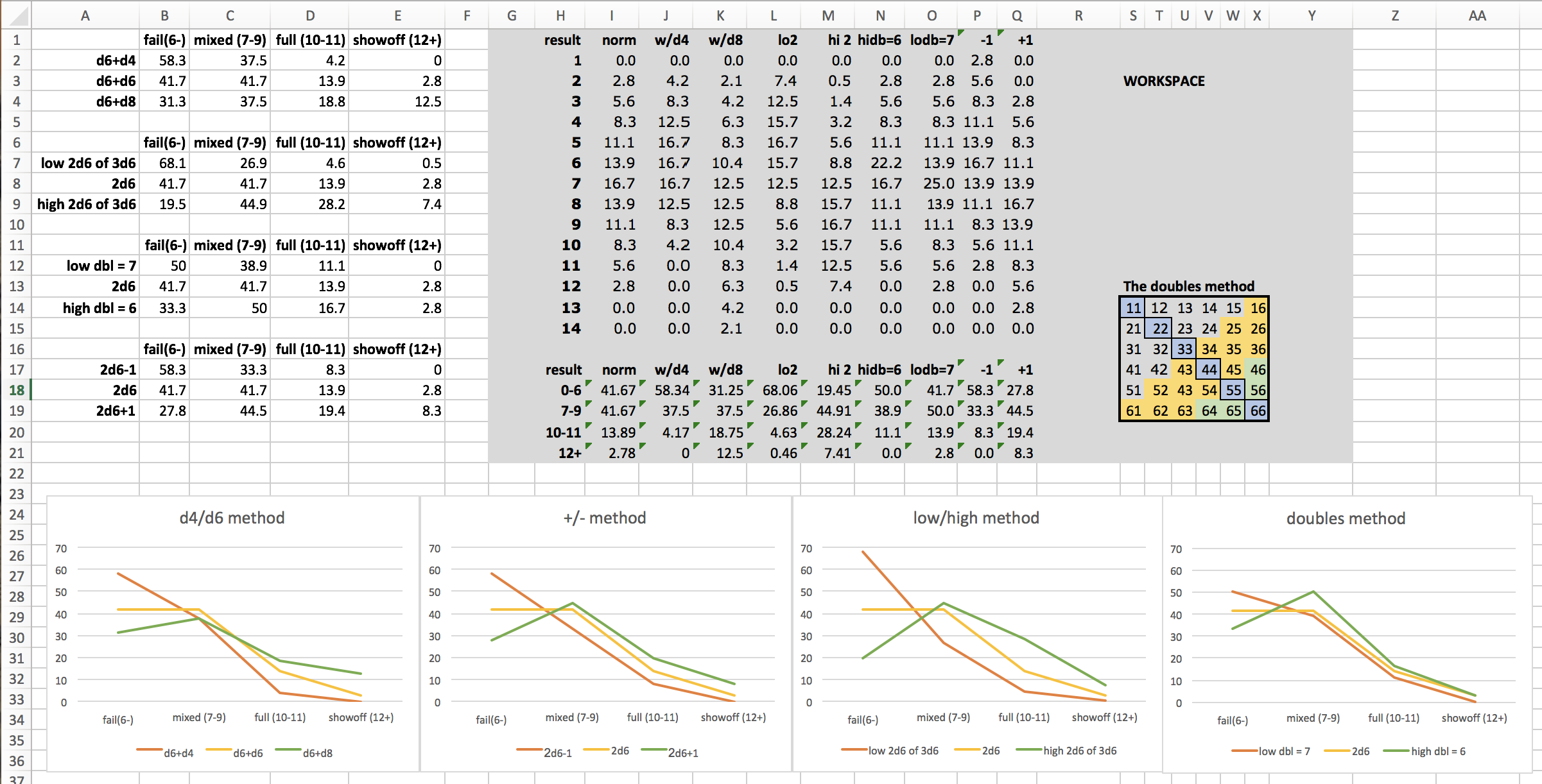
Again…
Originally shared by Ray Otus
[Reposted with better graphic] WHY oh why I am I thinking about this again? So … some people want to mess with the dice in Dungeon World/PbtA games so that there is no +1 or –1 but rather a D&D 5e style advantage and disadvantage. I get why. I was thinking today about different ways to do it and how much they warped the percentages. Here’s my findings.
Variations Compared
d4/d6 method = roll d6+d4 when disadvantaged, d6+d8 when advantaged
+/- method = this is the ‘control’ group: 2d6-1, 2d6, 2d6+1
low/high method = this is the popular one, roll 3d6 and remove the highest when disadvantaged or remove the lowest when advantaged
doubles method = roll 2d6, when disadvantaged count high doubles (44,55,66) as a 6; when disadvantaged count low doubles (11,22,33) as 7
So which is the best method? Well, taste varies of course. I’m most interested in methods that produce curves close to the +/- method. To me it looks like the d4/d6 method is a good one. Which is nice because there is already a precedent (e.g. barbarian appetites move). The doubles method is good too, but too weird.
Anyway. I don’t actually think I would ever change this, but here ya go.

Ooh, that’s really interesting. Would you be able to explain your methodology in incredibly simple terms? I’d love to learn how to do that.
Yeah, plug the variables into http://anydice.com/. LOL. Sorry. I wish I could lay out the formulas for you, but I don’t have that skill. I just summed up the ranges and inserted the Excel graphs.
You should also check out the high/low for only one of the two dice method. Highest of 2d6 + 1d6. anydice.com – AnyDice
Will D Nice addition. I think I’d favor that one ((high/low die of 2d6) + 1d6)) ’cause it sticks to d6s for Move rolls. It could even be written as an operation for just two dice. (Roll 2d6. Keep the highest/lowest; reroll the other.)
Interesting method. I see it’s value but I have the same complaint I have about most of these, which is that or feels a little clunky or at least isn’t any more intuitive than +/- 1
Ray Otus This is true.
Dear Ray Otus , could you share these graphics in a file format so I could save them somewhere ?
Magi max:
u5618075.dl.dropboxusercontent.com – u5618075.dl.dropboxusercontent.com/u/5618075/pbta-shots.zip
Great !!! Many thanks
With a d4/d8 system, is there a desires/appetites mechanic to go along with it?
The +1/-1 mathematically works, but the 4e to 5e F&D transition has shown that creating too many modifiers slows the game down for many players and more dice with less references for different mods = more streamlined play.
The other systems seem kludgy, but I personally like a conditional 3d6 method for rolls that build the lore and fiction of the world. It encourages more interesting table talk when players create fictional complications in order to get more mechanical narrative control over the scene. They succeed more often, but they’ve also given you a free hook into a DM move made off-screen.